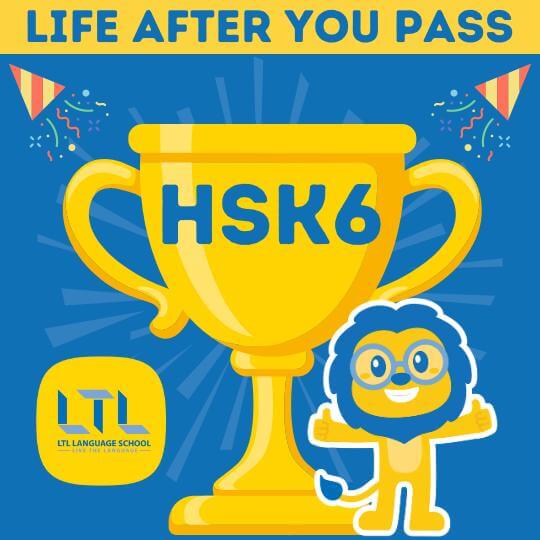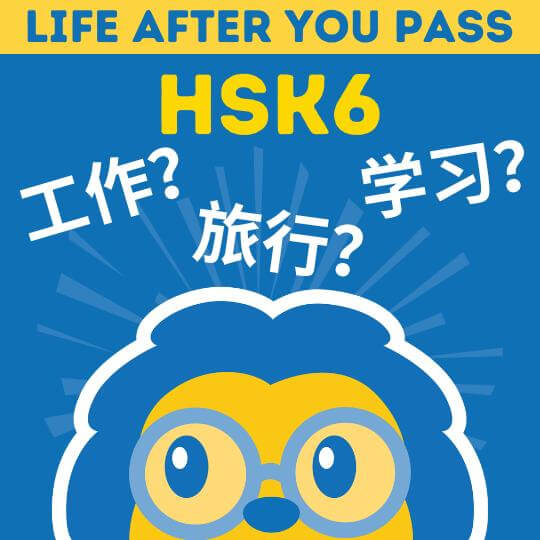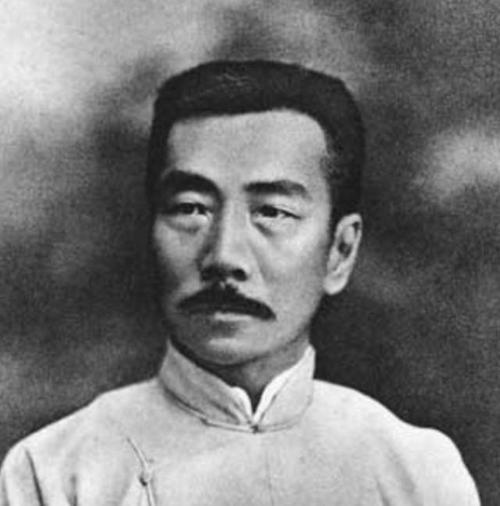What To Do After Passing HSK 6? More Than You Think!
So, you’ve passed the new HSK 6. Congratulations! 🏆
After all the hard work studying characters, dealing with those nearly impossible 语病 (yǔbìng), you’re probably ready for a break.

But after all those months of studying, you may also be wondering what to do next.
How do I show off my amazing Chinese now? How do I make sure it doesn’t 退步 (tuìbù, regress)?
Fear not, we have all the answers and we’re here to tell you all about the exciting world of possibilities after passing HSK 6!
Life after HSK – Travel
Life After HSK – Study
Life After HSK – Work
Life After HSK – Read
Life After HSK – Find a Niche if you Haven’t Already
Life After HSK – Use the Internet… Duh!
Life After HSK – Travel!
Travelling around China is the best way to keep up and improve your Chinese.
Not only will you get used to understanding different accents from around China, you’ll also learn about how much Chinese culture, slang, and food varies across China.
Eat your way through Dongbei with 锅包肉 while practising your 东北 slang. 干哈呢 (gànhāne?, what are you up to?)
Have your fill of Chinese history while learning to add those “ers” at the end of every word in Beijing.
Improve your spice tolerance in Sichuan as you pick up some 川普 (Sichuan Putonghua).
Definitely ask a Sichuanese person how to say ten and four. It will turn your grasp on tones upside down 😉

Travel Sichuan 🧳 7 (Sublime) Hidden Gems to Discover Outside of Chengdu
When you go to travel Sichuan, you are in for a great adventure. Here are 7 spots we think you simply have to visit when you come to Sichuan.
While travelling in China, we recommend staying at hostels. If you’re really hoping to improve your Chinese, try to find hostels that have mostly Chinese clientele (you can tell from the reviews on Booking).
Pro-tip: Sometimes booking on Chinese booking sites like Qunar and Ctrip can be cheaper than on Booking or other booking sites. (Just make sure that the accommodations take foreigners!) Calling the hostels and asking about prices will sometimes get you even cheaper accommodation.
Take this opportunity to explore the country whose language you’ve been learning for years.
Use your superior Chinese skills to visit areas that most foreigners don’t get to, like Xīnjiāng (新疆), Shānxī (山西), or Ānhuī (安徽) to get a deeper understanding of this diverse and beautiful country.
Life After HSK – Study!
Now that you’ve passed the HSK 6, you’ll be eligible for lots of Chinese-level programs at Chinese universities at undergraduate or graduate levels.
The Chinese government and individuals offer lots of scholarships, many full-ride, to foreign students.
Take this opportunity to use your newly acquired Chinese skills to get a master’s!
Check out the websites of your country’s embassy or the particular university you’d like to apply to for more information.
🔍 You could also delve into other Chinese dialects such as Shanghainese and Hokkien.

Chinese Proverbs: 9 of the Best Chinese Sayings // PLUS Bonus Quiz
While there are many sayings in English, Chinese proverbs are comparatively used much more frequently in everyday speech. These are called chéngyǔ 成语.
Life After HSK – Work

There’s nothing like challenging yourself by jumping into an all-Chinese working environment.
Although English language education is still the biggest employer for expats. It’s possible to find jobs in higher education, travel, finance, or start-ups.
A good starting point is job boards on expats, city-specific websites, and networking in the city you want to live in.
Life After HSK – Read
Now that your character recognition is at its peak. It’s time to pick up an interest in Chinese literature.

Before you get started on 四大名著 (Sìdàmíngzhù, The Four Great Works of Chinese Literature, most famously which includes 西游记, xīyóujì, The Journey to the West), or even popular modern Chinese lit, remember these are all written in Classical Chinese and are often hard to comprehend for even native Chinese speakers.
However, it is a wonderfully challenging undertaking that can help you understand more about Chinese philosophy, history, and the Chinese language.
Stanford offers a free online course on Classical Chinese that is a useful jumping off point.
If you’re looking for something a bit more easier to start off with, try these authors or books, personally enjoyed by this bookworm blogger.
This list is far from comprehensive but can give you a good sampling of the types of fiction out there.
- Mò Yán 莫言:Winner of the 2012 Nobel Prize for Literature, Mo Yan is a novelist whose works are reminiscent of Latin American novelists like Gabriel García Márquez and Isabel Allende. The language of Mo Yan’s is very readable while also providing unique commentary on Modern Chinese Society. His most famous novels are: 红高粱家族 (Hónggáoliàng Jiāzú, The Red Sorghum Clan), 蛙 (Wā, Frog), and 生死疲劳 (Shēngsǐ Píláo, Life and Death Are Wearing Me Out), which was written in 42 days.
- Yú Huá 余华: Yu Hua’s To Live (活着, Huózhe) is probably one of the most well-known contemporary novels among Chinese learners. If you have already seen the movie, the novel is still well worth a reader, as the novel touches upon the events especially significant in modern Chinese history, including the Chinese Civil War (内战,nèizhàn) and the Cultural Revolution (文化大革命, Wénhua Dagémìng).

Immersion Training – How to Really Immerse Yourself
100% Immersion Into Chinese Culture While Travelling If you didn’t know already LTL stands for “Live the Language”. LTL is based on immersion and the practice of immersion training. Today, our friend Callan tells us the best way to achieve…
- Hán Hán 韩寒: Han Han is at the forefront of China’s popular literature movement. He also happens to be a race car driver. Many of his novels have been made into popular Chinese films, most famously 后会无期 (Hòuhuìwúqī, The Continent).

- Sān Máo 三毛: San Mao, a Taiwanese author who remains extremely popular among young people in China, is particularly known for her stories about studying and living abroad, as well as the relationship between her and her Spanish husband, known in Chinese as 荷西 (Héxī). A collection of short stories called 撒哈拉的故事 (Sāhālā de gùshi, Stories of the Sahara) is a good one to start with.
To really understand the beginnings of modern Chinese literature, you might also check out Lǔ Xùn (鲁迅), Lǎo Shě (老舍),Shěn Cóngwén (沈从文),Bā Jīn (巴金), or Eileen Chang (张爱玲, Zhāng Aìlíng).
Alternatively, you can check out the plethora of Internet literature (网络小说 wăngluòxiăoshuo) available online.
Life After HSK – Find a Niche if You Haven’t Already
As we all know, passing the HSK doesn’t mean you’ve mastered the Chinese language.
For some, it feels nearly impossible. But remember you don’t have to master every bit of vocabulary to feel confident in the Chinese language.
Combine your love for Chinese and China with your other interests. Maybe that means trying to write Chinese songs if you’re a musician, becoming an expert on Chinese cuisine by searching and trying recipes on Baidu, or mastering different Chinese dialects and accents.

Immersion Training – How to Really Immerse Yourself
100% Immersion Into Chinese Culture While Travelling If you didn’t know already LTL stands for “Live the Language”. LTL is based on immersion and the practice of immersion training. Today, our friend Callan tells us the best way to achieve…
Life After HSK – Use the Internet… Duh!
There are plenty of resources online.
I’m sure that you’re already tuned into WeChat, Douyin, maybe even QQ or Weibo. Ask your friends what accounts they follow.
This blogger recommends 逻辑思维 (Luójisīwéi) for listening comprehension. The author of this blog posts 60-minute audio commentaries on different subjects ranging from technology to literature to self-development.
The account also includes a transcript for extra practice. For reading comprehension and keeping updated with China-related news, the New York Times or the BBC (both have Chinese versions) are excellent resources that overall utilize simpler language than other Chinese-language media websites.
It’s also worth binge-watching some Chinese TV and listening to Chinese podcasts to keep your skills sharp!
However, you decide to spend your post-HSK life. Remember that continuing to perfect your Chinese doesn’t just have to be challenging, it can also be fun!
Want more from LTL?
If you wish to hear more from LTL Mandarin School why not join our mailing list? We give plenty of handy information on learning Chinese, useful apps to learn the language and everything going on at our LTL schools!
Sign up below and become part of our ever-growing community!
BONUS || Want to study Chinese with us in Chengdu? Why not check out our group courses or individual Chinese classes.


 Hi, my name is Sabatino. I am from Italy and I am a Student Advisor at LTL. Fancy coming to study with us in China?
Hi, my name is Sabatino. I am from Italy and I am a Student Advisor at LTL. Fancy coming to study with us in China? Hi, my name is Mojca. I am from Slovenia in Europe and I work as a student advisor at our Chengdu school.
Hi, my name is Mojca. I am from Slovenia in Europe and I work as a student advisor at our Chengdu school.





2 comments
Going for the HSK 6 this year! Wish me luck
You got this Nina!